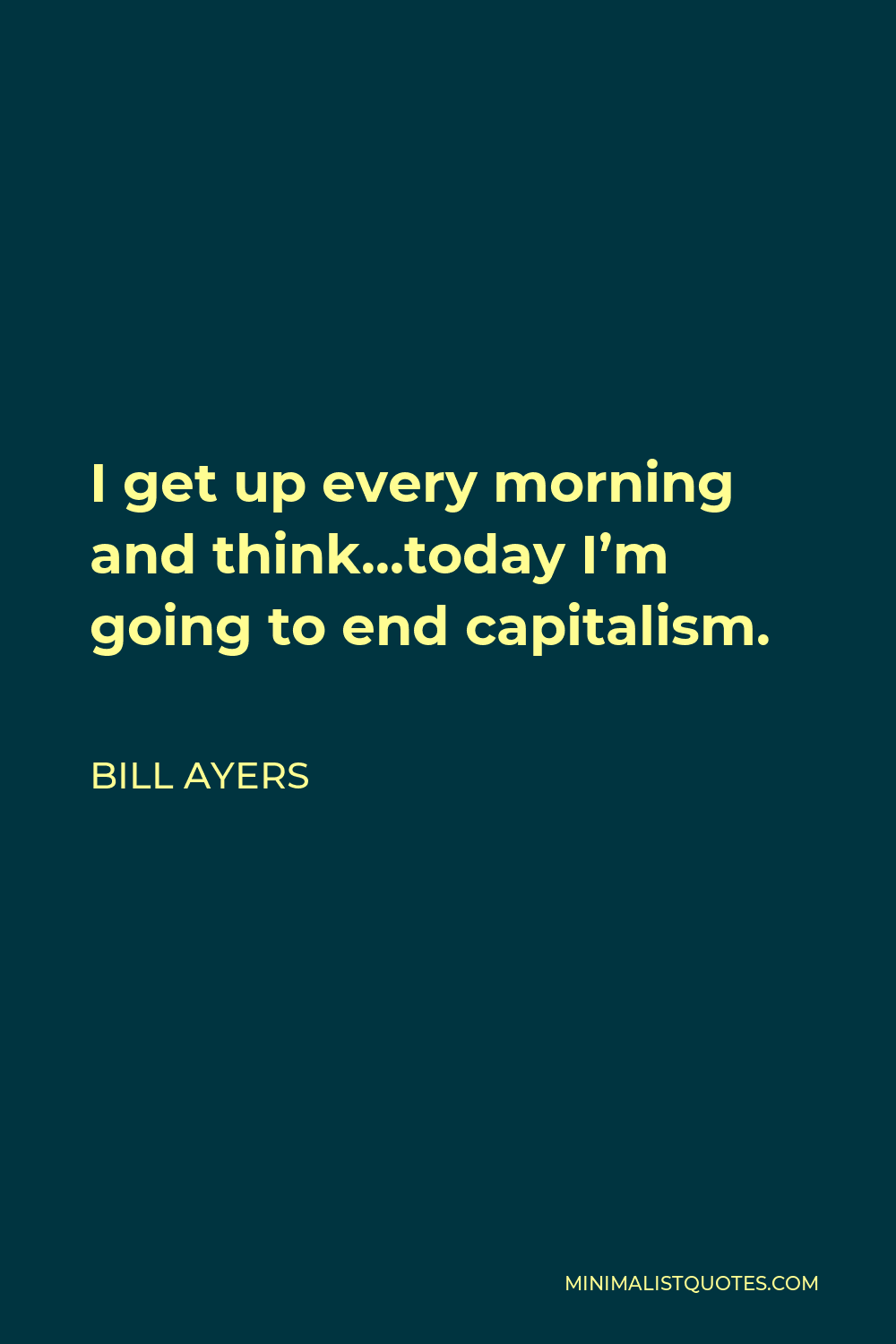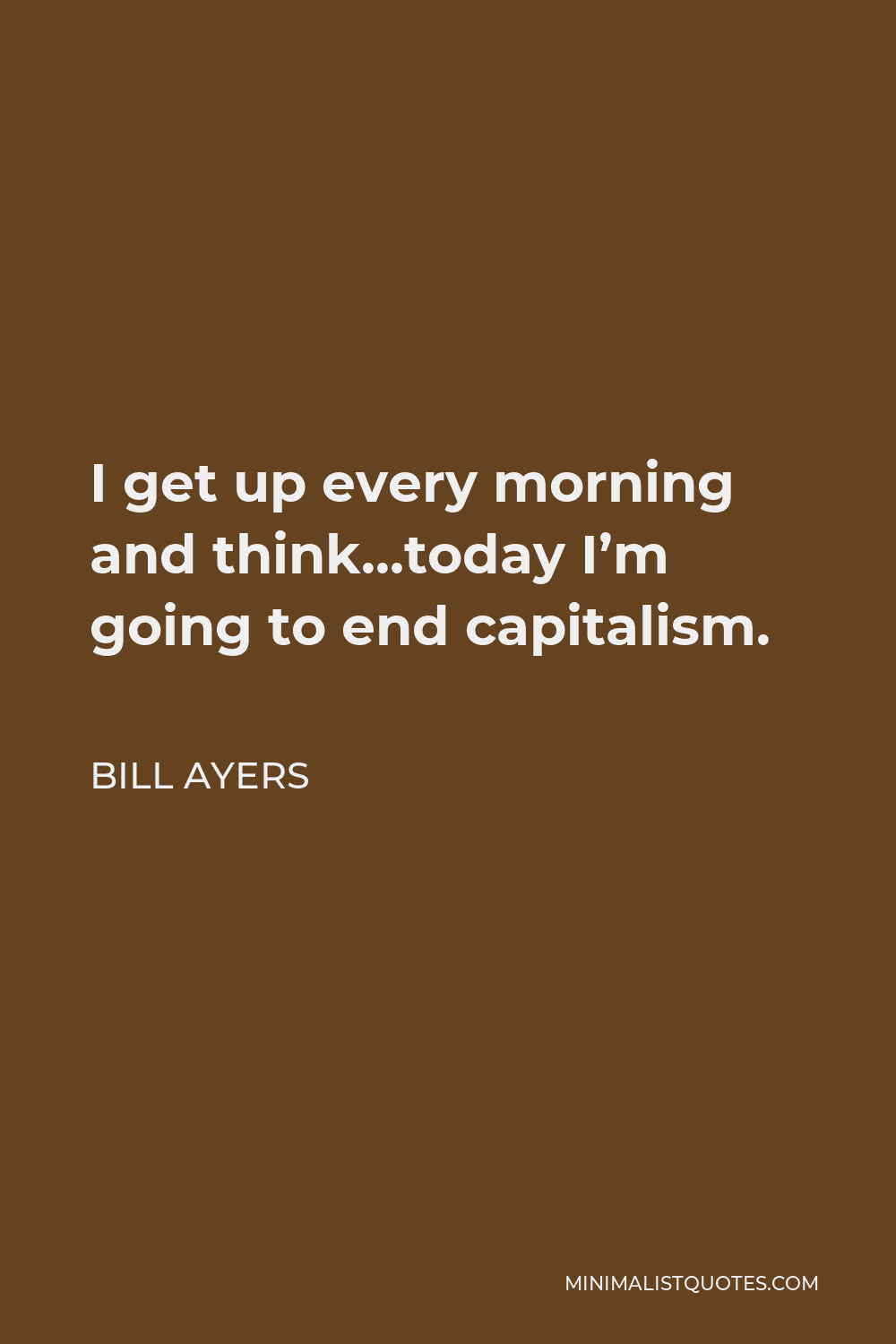I get up every morning and think…today I’m going to end capitalism.
BILL AYERSI get up every morning and think, today I’m going to make a difference. Today I’m going to end capitalism. Today I’m going to make a revolution. I go to bed every night disappointed but I’m back to work tomorrow, and that’s the only way you can do it.
More Bill Ayers Quotes
-





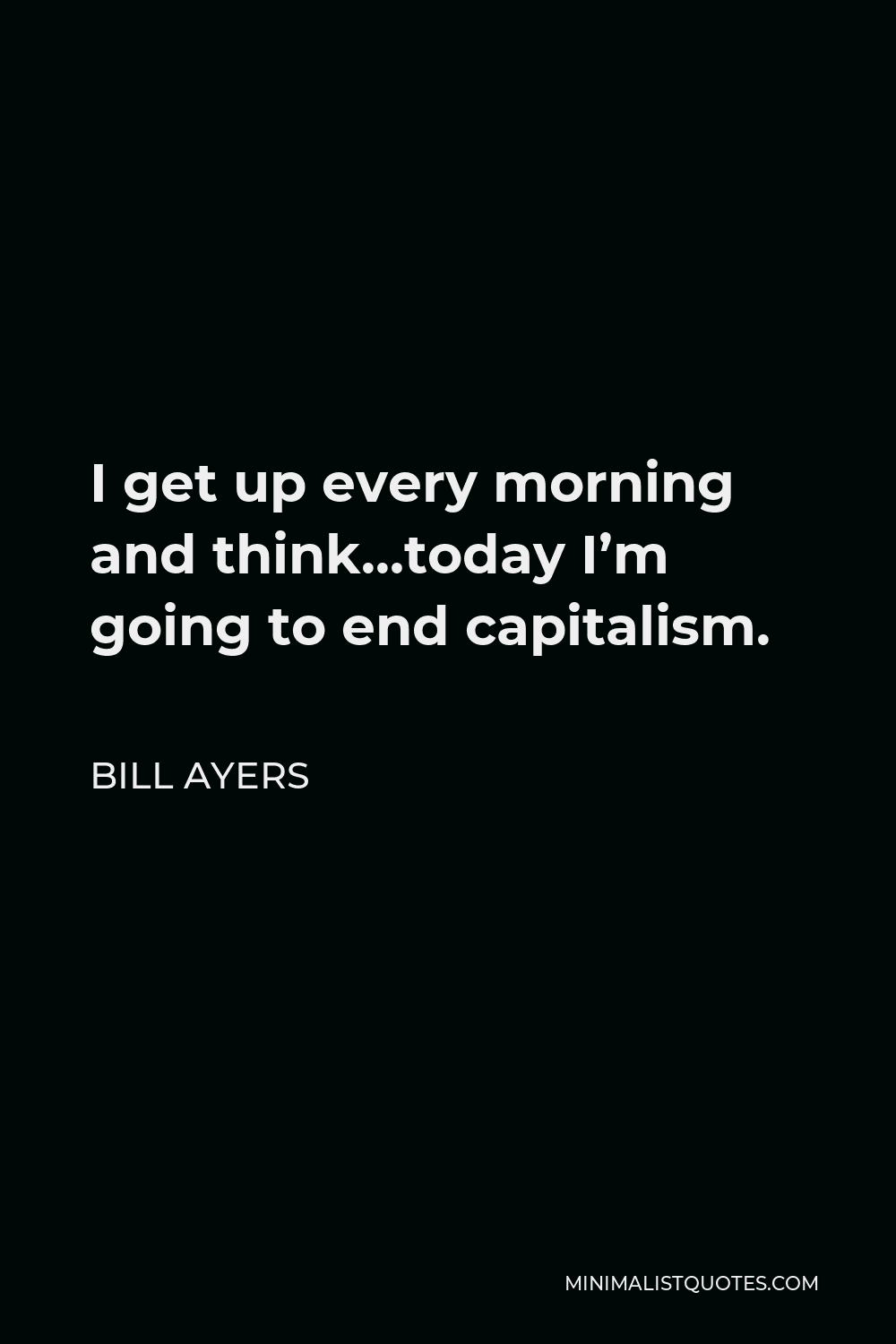
-





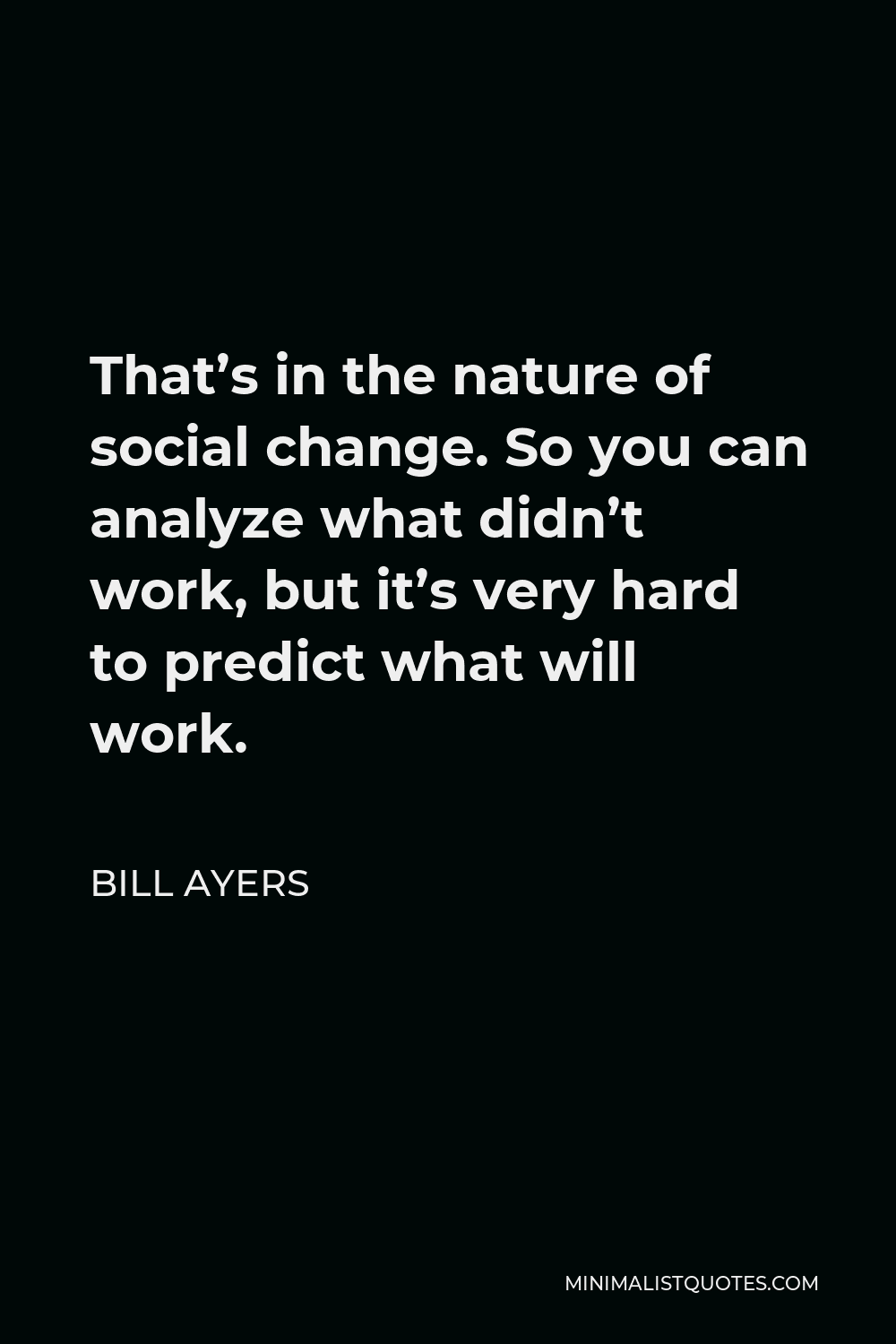
That’s in the nature of social change. So you can analyze what didn’t work, but it’s very hard to predict what will work.
BILL AYERS -





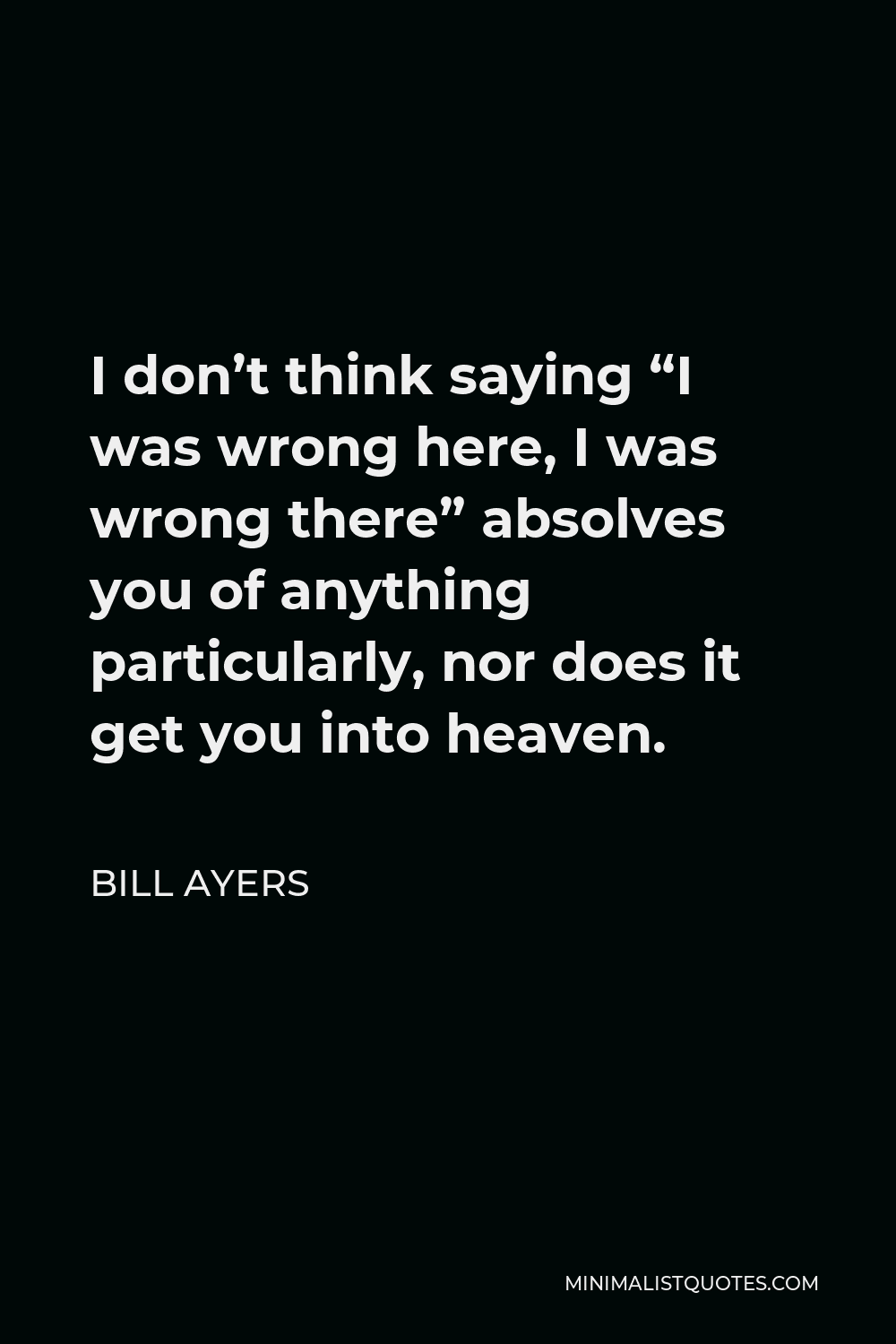
I don’t think saying “I was wrong here, I was wrong there” absolves you of anything particularly, nor does it get you into heaven.
BILL AYERS -





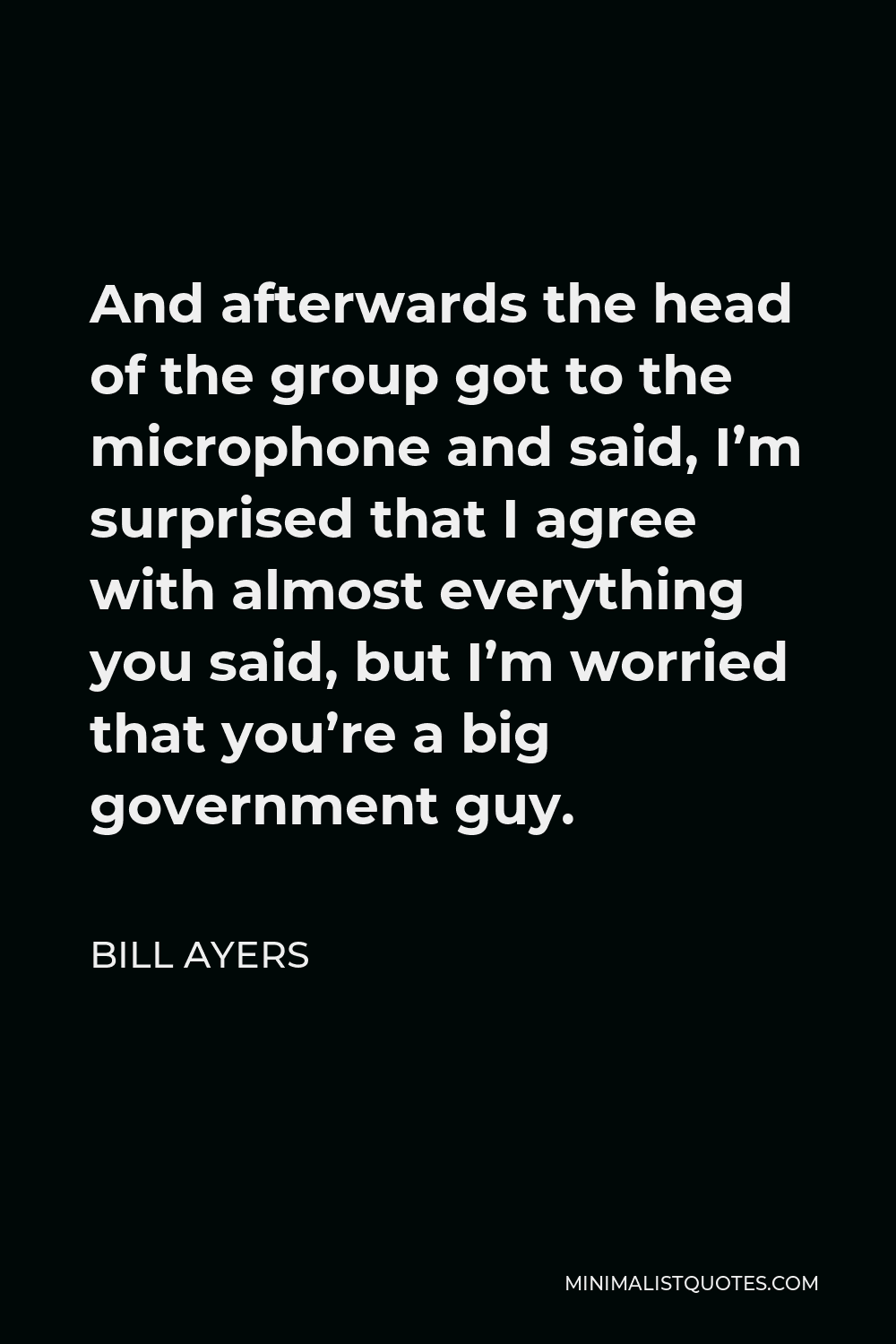
And afterwards the head of the group got to the microphone and said, I’m surprised that I agree with almost everything you said, but I’m worried that you’re a big government guy.
BILL AYERS -





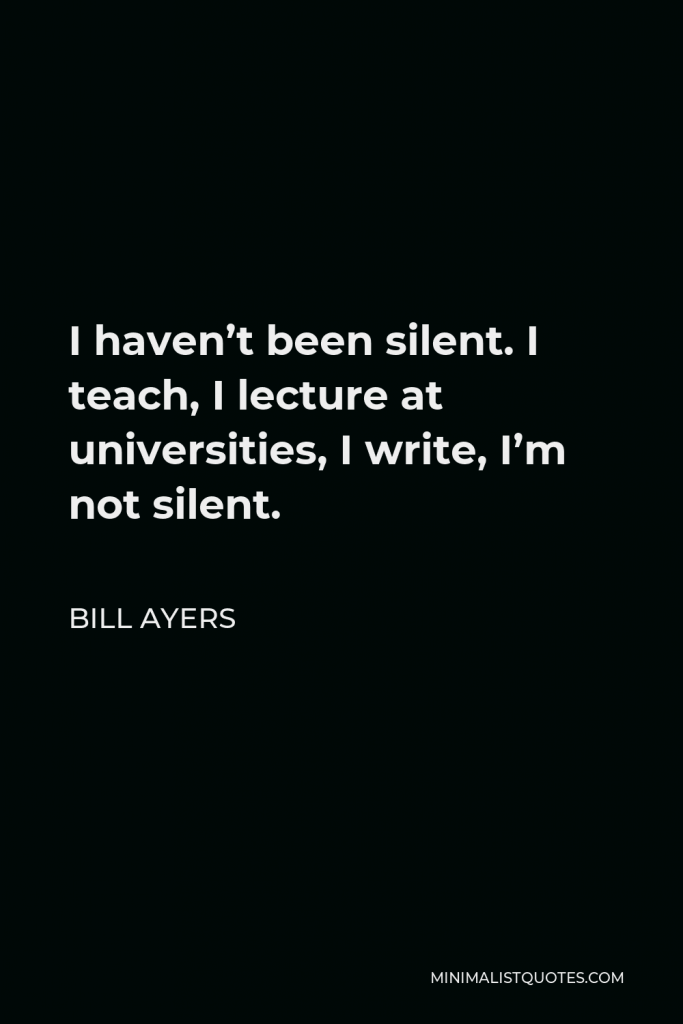

I haven’t been silent. I teach, I lecture at universities, I write, I’m not silent.
BILL AYERS -





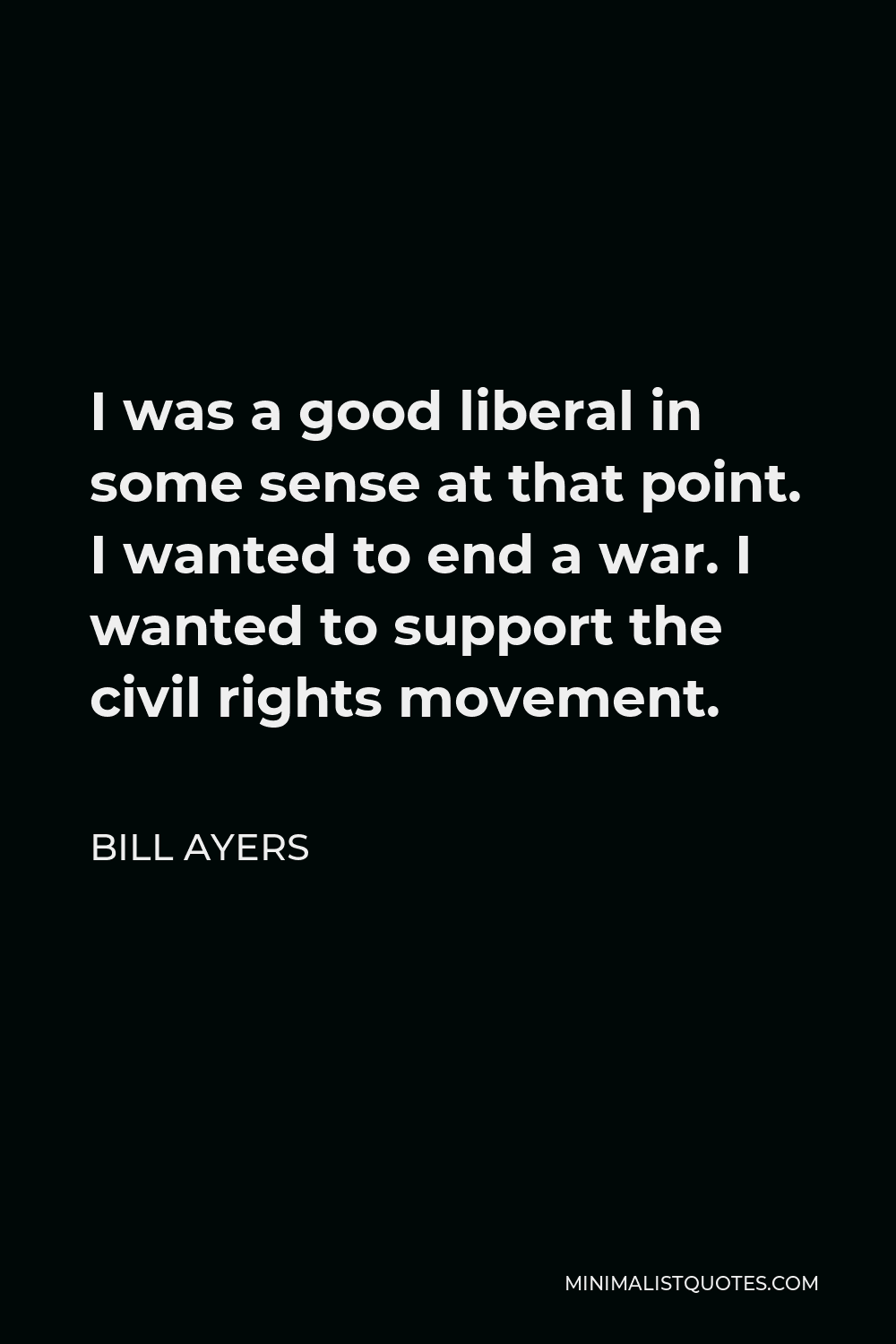
I was a good liberal in some sense at that point. I wanted to end a war. I wanted to support the civil rights movement.
BILL AYERS -





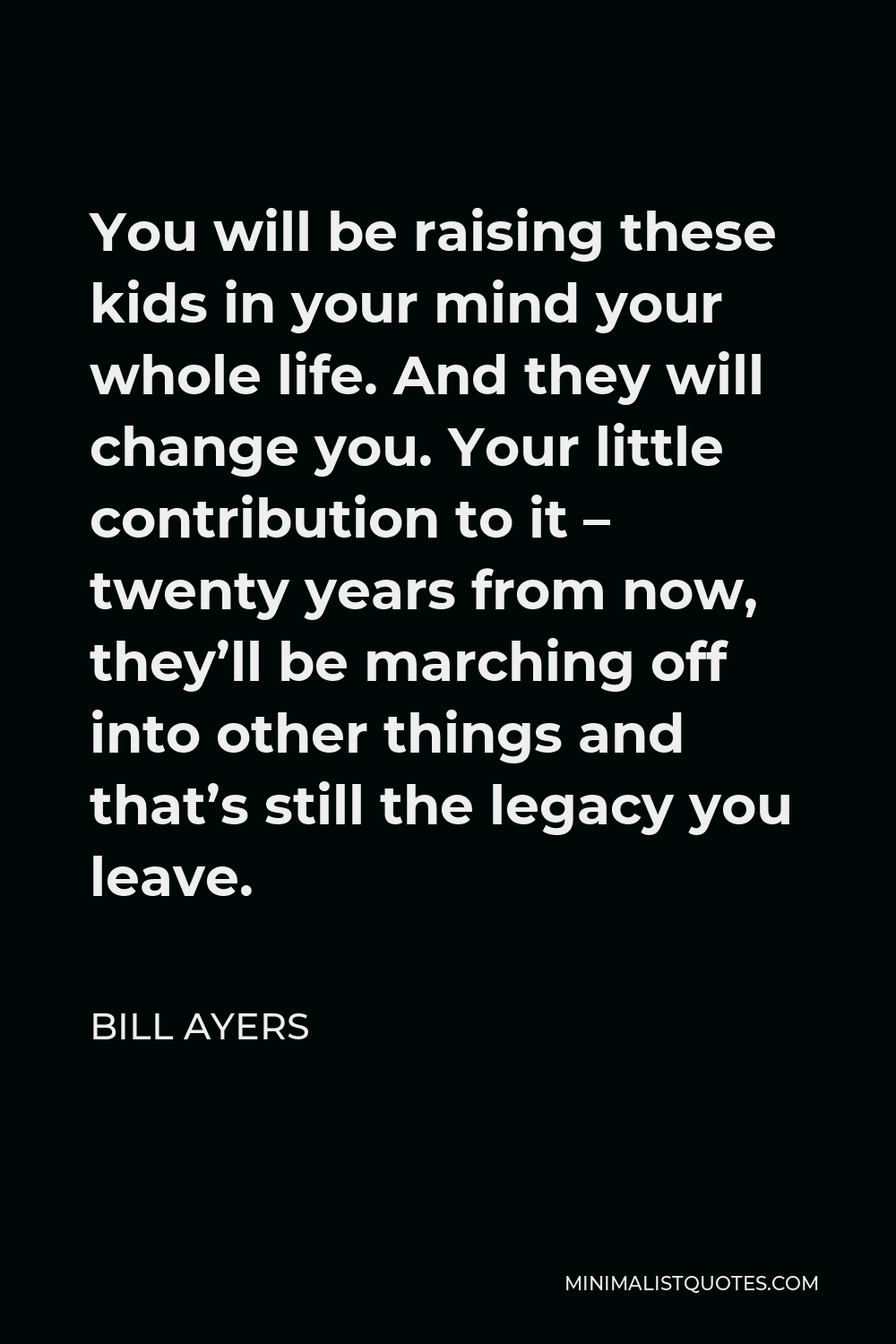
You will be raising these kids in your mind your whole life. And they will change you. Your little contribution to it – twenty years from now, they’ll be marching off into other things and that’s still the legacy you leave.
BILL AYERS -





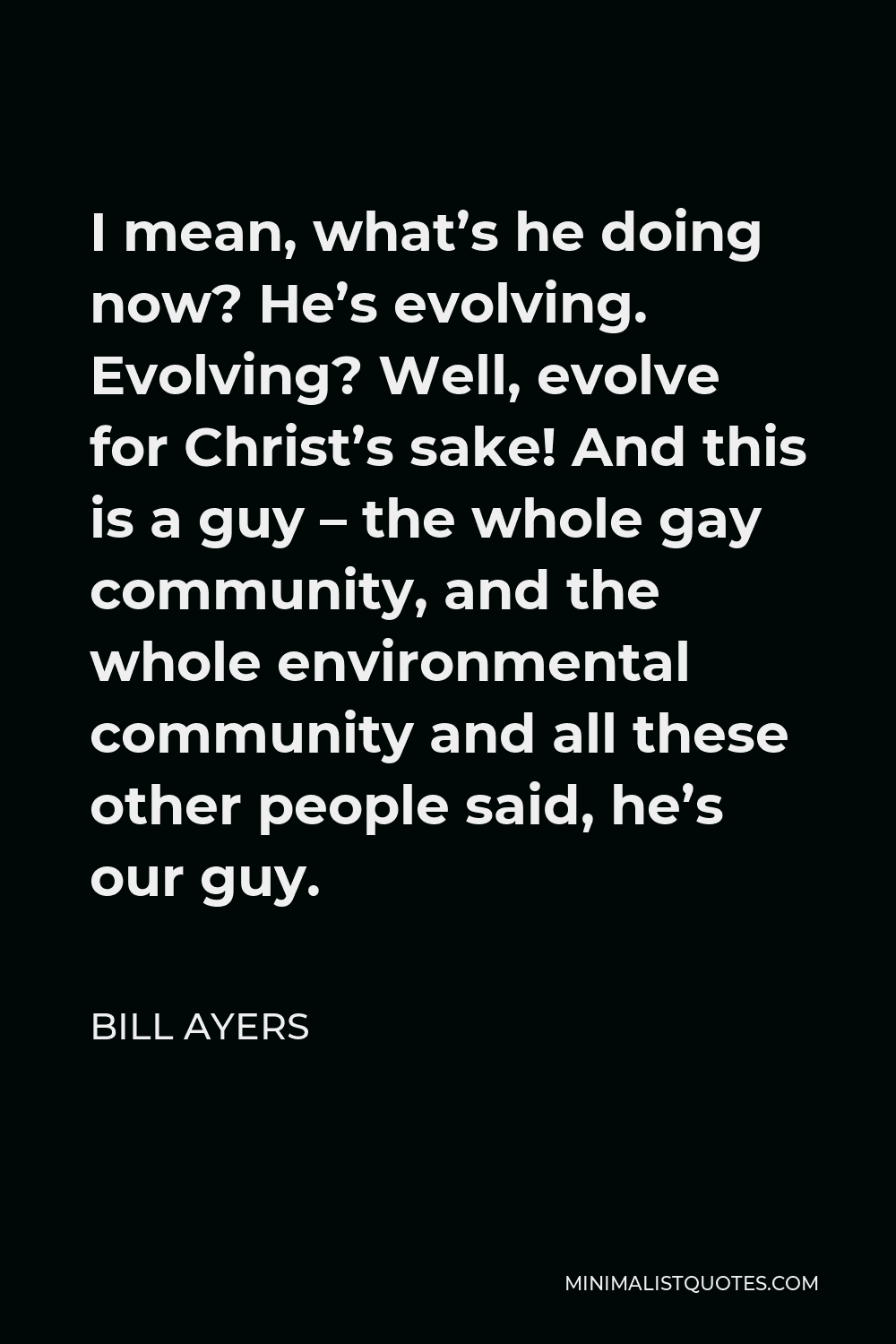
I mean, what’s he doing now? He’s evolving. Evolving? Well, evolve for Christ’s sake! And this is a guy – the whole gay community, and the whole environmental community and all these other people said, he’s our guy.
BILL AYERS -





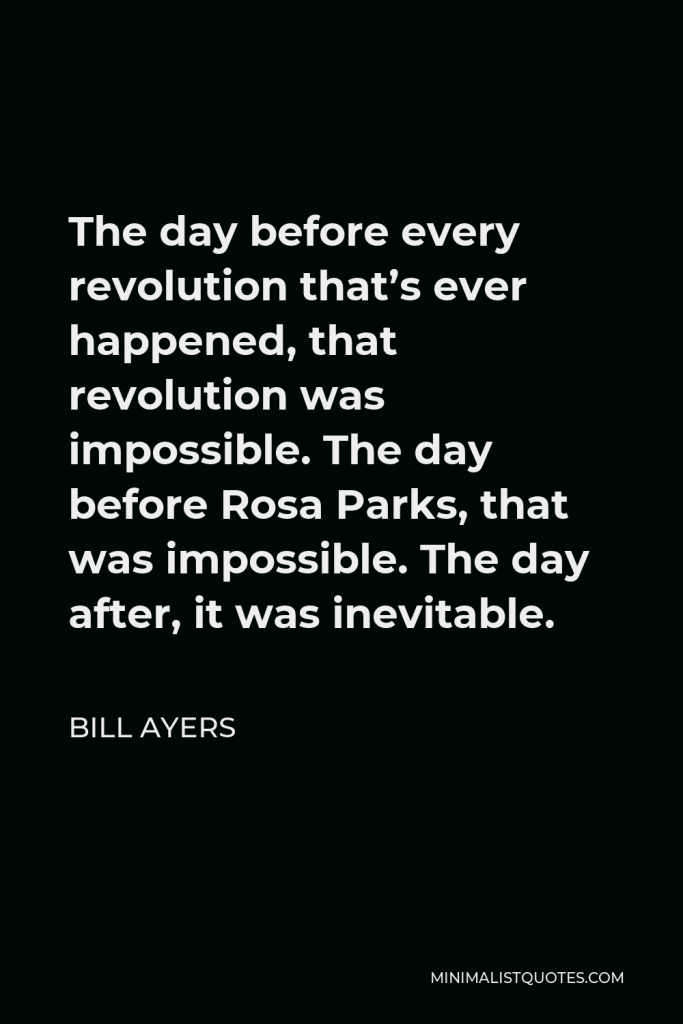

The day before every revolution that’s ever happened, that revolution was impossible. The day before Rosa Parks, that was impossible. The day after, it was inevitable.
BILL AYERS -





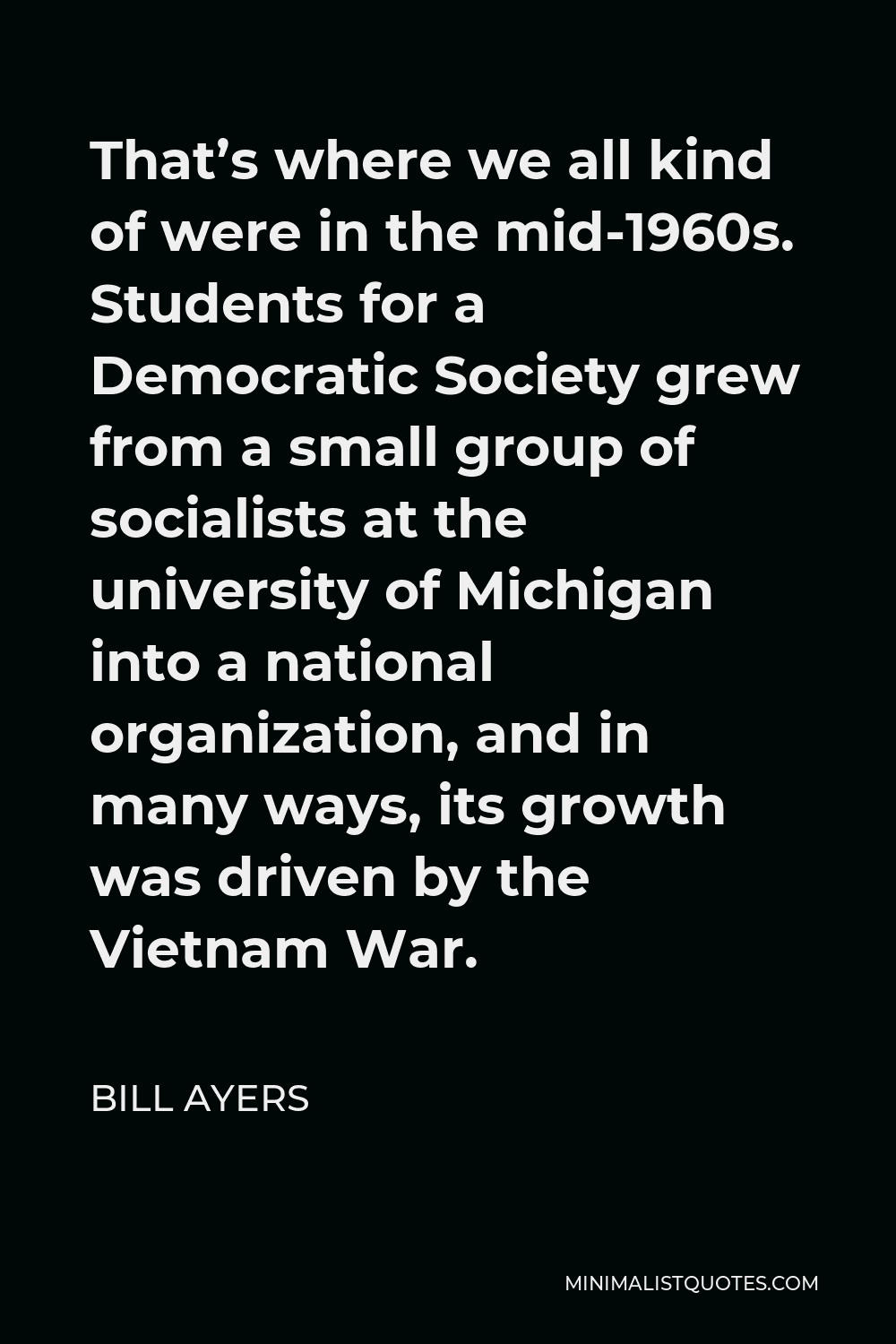
That’s where we all kind of were in the mid-1960s. Students for a Democratic Society grew from a small group of socialists at the university of Michigan into a national organization, and in many ways, its growth was driven by the Vietnam War.
BILL AYERS -





![Bill Ayers Quote - [Barack] Obama doesn’t disappoint me, because all during the campaign he said, I’m a pragmatic, middle-of-the-road, compromising politician.](https://minimalistquotes.com/images/barack-obama-doesnt-disappoint-me-because-all-duri.jpg)
[Barack] Obama doesn’t disappoint me, because all during the campaign he said, I’m a pragmatic, middle-of-the-road, compromising politician.
BILL AYERS -





![Bill Ayers Quote - I’d been arrested many times by then. I’d been an organizer, so many things had changed over those three years [from 1965 till 1968].](https://minimalistquotes.com/images/id-been-arrested-many-times-by-then-id-been-an-org.jpg)
I’d been arrested many times by then. I’d been an organizer, so many things had changed over those three years [from 1965 till 1968].
BILL AYERS -





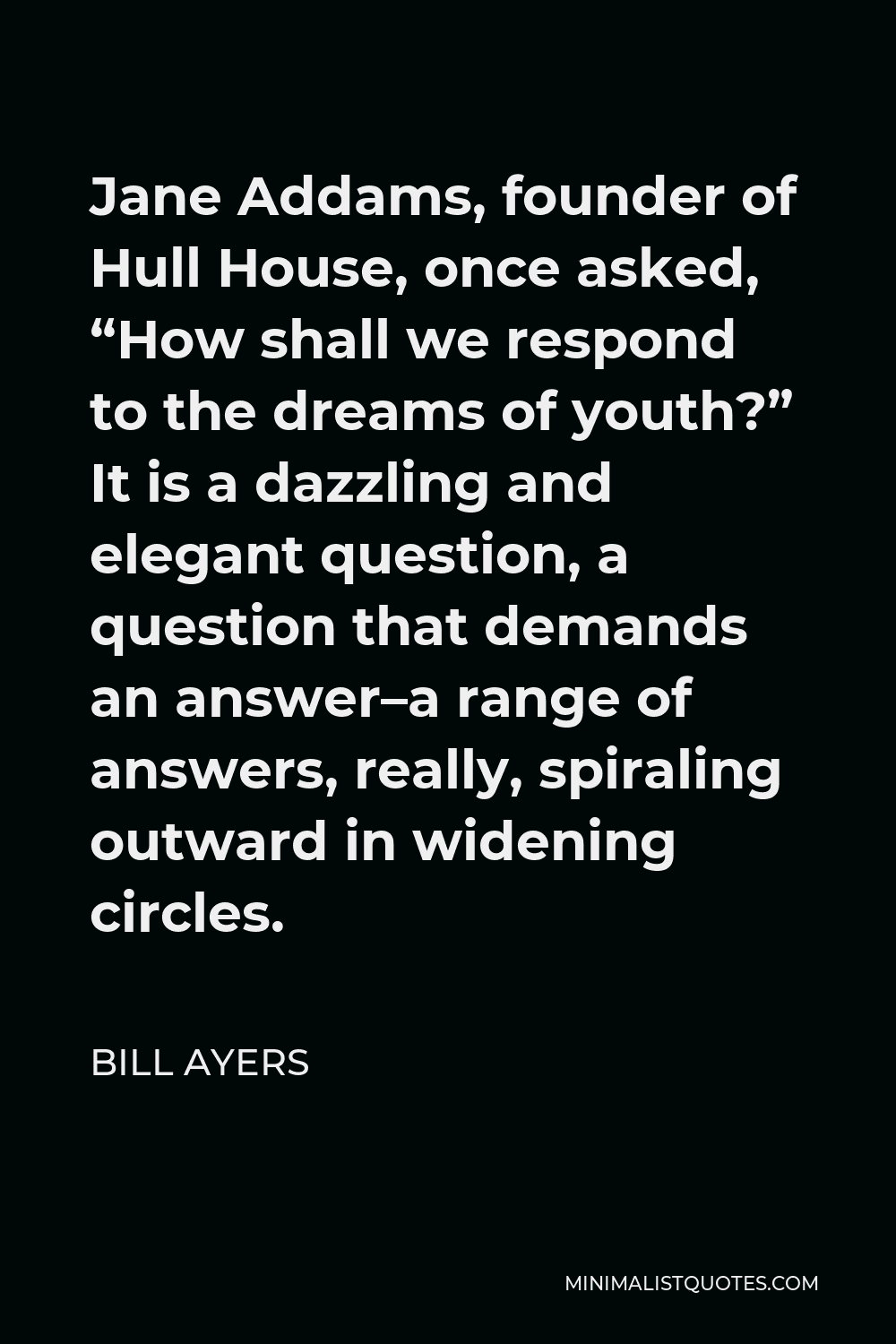
Jane Addams, founder of Hull House, once asked, “How shall we respond to the dreams of youth?” It is a dazzling and elegant question, a question that demands an answer–a range of answers, really, spiraling outward in widening circles.
BILL AYERS -





![Bill Ayers Quote - [John] McCain seemed to be winking to the Right, and [Barack] Obama seemed to be winking to the Left. Neither one of them – if McCain had been elected we’d still be where we are on gay rights.](https://minimalistquotes.com/images/john-mccain-seemed-to-be-winking-to-the-right-and-.jpg)
[John] McCain seemed to be winking to the Right, and [Barack] Obama seemed to be winking to the Left. Neither one of them – if McCain had been elected we’d still be where we are on gay rights.
BILL AYERS -





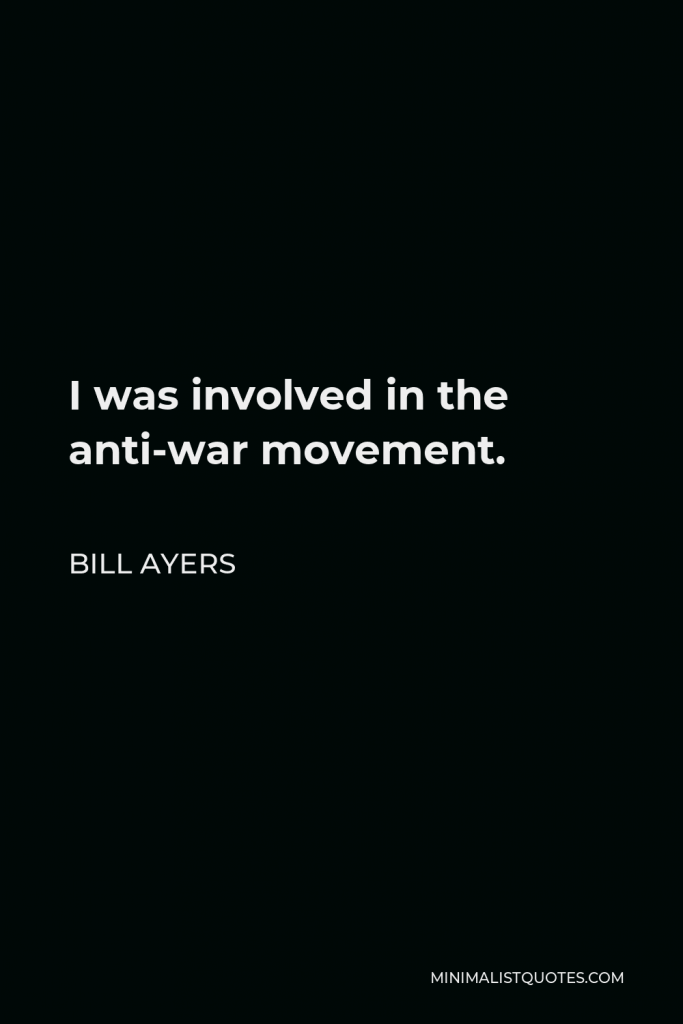

I was involved in the anti-war movement.
BILL AYERS -





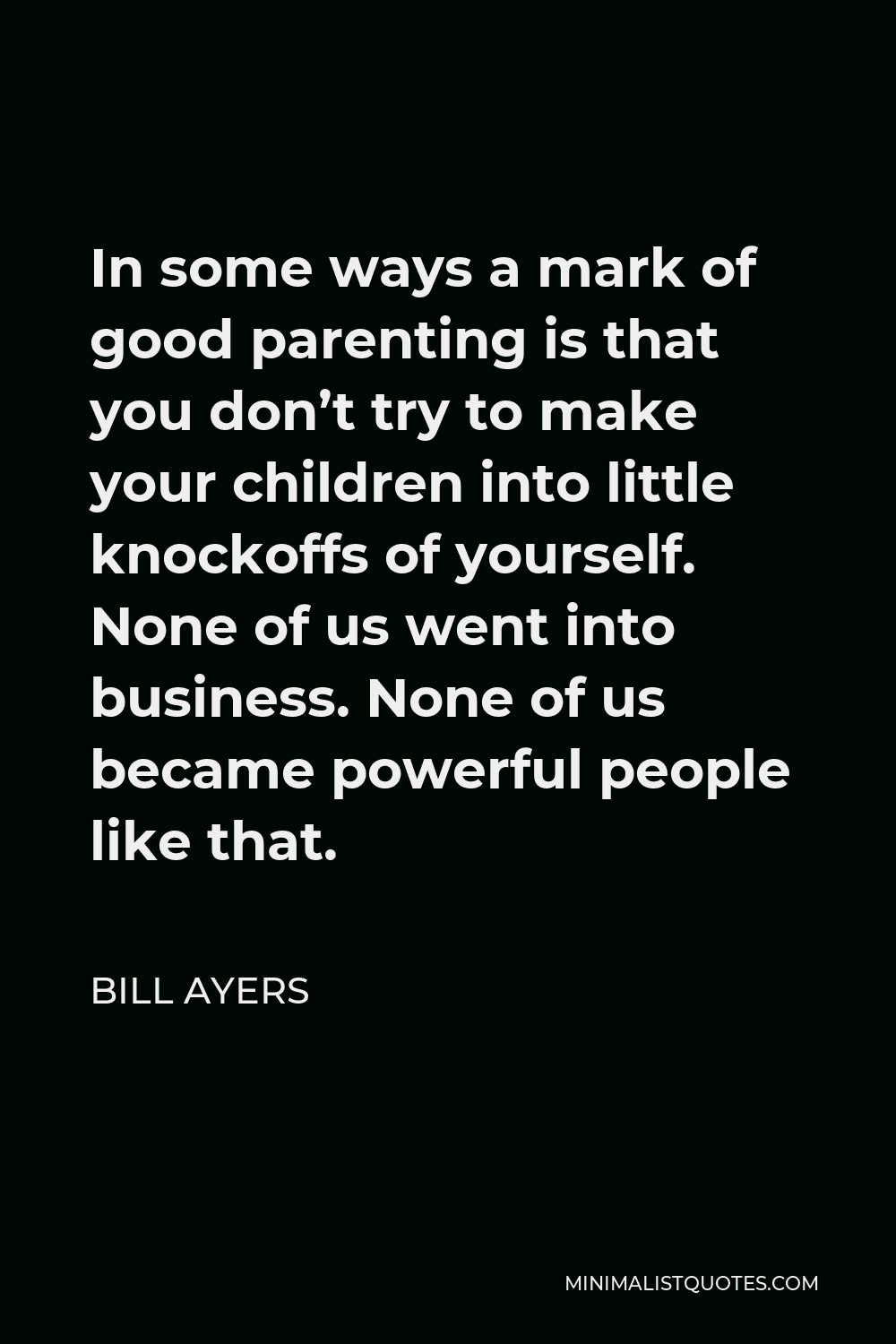
In some ways a mark of good parenting is that you don’t try to make your children into little knockoffs of yourself. None of us went into business. None of us became powerful people like that.
BILL AYERS
